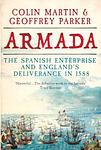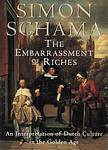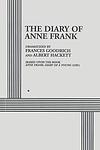The Greatest "Netherlands, History" Books of All Time
Click to learn how this list is calculated.
This list represents a comprehensive and trusted collection of the greatest books. Developed through a specialized algorithm, it brings together 300 'best of' book lists to form a definitive guide to the world's most acclaimed books. For those interested in how these books are chosen, additional details can be found on the rankings page.
Genres
The category of "History" in books refers to the study and interpretation of past events, societies, and cultures. It encompasses a wide range of topics, including political, social, economic, and cultural developments, as well as the lives of individuals and groups who have shaped the course of history. History books can be written from various perspectives and may focus on specific time periods, regions, or themes. They aim to provide readers with a deeper understanding of the past and its impact on the present.
Countries
Date Range
Reading Statistics
Click the button below to see how many of these books you've read!
Download
If you're interested in downloading this list as a CSV file for use in a spreadsheet application, you can easily do so by clicking the button below. Please note that to ensure a manageable file size and faster download, the CSV will include details for only the first 500 books.
Download-
1. The Waning of the Middle Ages by Johan Huizinga
"The Waning of the Middle Ages" is a historical analysis of the cultural life of the late Middle Ages, particularly in France and the Low Countries, during the 14th and 15th centuries. It delves into the period's modes of thought, forms of expression, religious beliefs, and social norms. The book argues that the era was characterized by a highly stylized and overwrought civilization, marked by an excessive emphasis on chivalry and courtly love, a religious mindset dominated by the fear of death and the afterlife, and a cultural milieu that was both highly imaginative and deeply pessimistic.
-
2. A Time Of Gifts by Patrick Leigh Fermor
The book is a vivid memoir that chronicles the adventures of a young man as he embarks on a remarkable journey on foot across Europe in the 1930s. Starting from the Hook of Holland, he traverses through landscapes and cities, encountering a diverse tapestry of cultures, languages, and historical remnants. Along the way, he is welcomed by a variety of individuals, from aristocrats to peasants, who enrich his experience with their stories and hospitality. His travels provide not only a physical journey through the continent but also a journey through time, as he reflects on the complexities of Europe's past and the ominous shadows cast by the approaching Second World War.
-
3. Max Havelaar by Multatuli
"Max Havelaar" is a novel centered around a Dutch civil servant who is stationed in the Dutch East Indies (now Indonesia) during the mid-19th century. The protagonist, trying to battle the corruption and exploitation of the local people by Dutch colonial rulers, becomes disillusioned with the system. The novel provides a scathing critique of the colonial regime's treatment of the indigenous people, highlighting their suffering and exploitation. The author uses various narrative techniques and perspectives, making it a significant work in Dutch literature.
-
4. The Armada by Garrett Mattingly
"The Armada" is a comprehensive historical account of the attempted invasion of England by the Spanish Armada in 1588. This work meticulously chronicles the political and religious turmoil of the era, the strategic planning and execution of the naval campaign by the Spanish, and the defensive maneuvers of the English under the leadership of Queen Elizabeth I. The narrative delves into the personalities of key figures, the technological and tactical aspects of 16th-century naval warfare, and the broader European context, culminating in a detailed examination of the battles and the Armada's eventual disastrous defeat, which had lasting consequences for the balance of power in Europe.
-
5. Chronicles by Jean Froissart
The book in question is a historical narrative that provides a detailed account of the events, politics, and warfare of the 14th century, particularly focusing on the Hundred Years' War between England and France. The author, a medieval French chronicler, compiled extensive anecdotes, interviews, and reports, offering readers a vivid portrayal of the chivalric age, the lives of nobility, the impact of battles, and the social and political dynamics of the time. His work is considered one of the most important primary sources for the period it covers, offering a blend of factual history and the author's own interpretations and biases, reflecting the complex tapestry of medieval European society.
-
6. The Embarrassment Of Riches by Simon Schama
"The Embarrassment of Riches" is an expansive historical analysis that delves into the culture, society, and identity of the Dutch during the height of their Golden Age in the 17th century. The book explores how the Netherlands, a small, newly independent nation, managed to become a global economic powerhouse and a cradle of artistic and intellectual innovation. Through a rich tapestry of details, the author examines various aspects of Dutch life, from domestic interiors and public rituals to the values and anxieties of the era, illustrating how the wealth accumulated from trade and colonial expansion influenced Dutch culture, morality, and social customs.
-
7. The Diary Of Anne Frank by Albert Hackett, Frances Goodrich
The book is a dramatic adaptation of the original diary written by a young Jewish girl who, along with her family and others, went into hiding during the Nazi occupation of the Netherlands in World War II. Over the course of two years, she records her thoughts, feelings, and experiences in a secret annex of an Amsterdam building. The diary poignantly captures the realities of living in constant fear of discovery, while also detailing the personal growth, aspirations, and everyday life of a teenager in extraordinary circumstances. The narrative ends abruptly when the group is betrayed and sent to concentration camps, with the girl's father being the only survivor. The diary's posthumous publication offers a deeply personal insight into the horrors of the Holocaust and the indomitable spirit of its young author.
-
8. The Ascent of Money: A Financial History of the World by Niall Ferguson
This book provides a comprehensive history of money, credit, and banking, tracing their evolution from ancient times to the present. It explores how financial systems have shaped human history, from the rise and fall of empires to the development of modern economies. The book delves into the origins of the stock market, the true nature of insurance, the perils of inflation, the importance of property rights, and the role of financial innovation in economic growth. It also examines the causes and consequences of financial crises, offering valuable insights into the complex relationship between finance and society.
Reading Statistics
Click the button below to see how many of these books you've read!
Download
If you're interested in downloading this list as a CSV file for use in a spreadsheet application, you can easily do so by clicking the button below. Please note that to ensure a manageable file size and faster download, the CSV will include details for only the first 500 books.
Download






